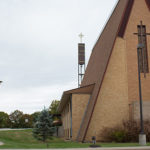WASHINGTON—Preventing taxpayer money from funding churches is a key protection for religious liberty, according to a brief the Baptist Joint Committee for Religious Liberty filed at the U.S. Supreme Court.
The brief asserts the First Amendment to the U.S. Constitution does not require state governments to fund houses of worship.
Seeking government funds for church playground
In Trinity Lutheran Church of Columbia, Inc. v. Pauley, a Missouri church is seeking government funds from a state program that awards a limited number of grants for playground improvements.
The federal and state constitutions prohibit any government establishment of religion, and the Missouri Constitution states no money taken from the “public treasury, directly or indirectly” can be used “in aid of any church, sect or denomination of religion.”
“Houses of worship and the government have separate funding sources, and they have different roles and responsibilities,” said Holly Hollman, general counsel of the Baptist Joint Committee. “Restrictions on aid to religious institutions are not suspect, but they are an effective means to protect religious liberty and the separation of church and state.
“Although our constitutional tradition allows for limited government funding for some activities of religiously affiliated nonprofits, churches are treated differently, and that’s good for churches. All houses of worship receive special legal status to protect their autonomy and religious liberty.”
‘Not funded through the coercive power of the state’
The brief reviews the Founders’ fight to avoid tax support for churches in the United States.
Sign up for our weekly edition and get all our headlines in your inbox on Thursdays
“The historical fight for disestablishment, led by Baptists and other religious dissenters, is well documented,” the brief states. “Disestablishment ensured that churches would not be funded through the coercive power of the state, but through the voluntary offerings of adherents, thus providing a constraint on government and a measure of religious liberty for individuals—to fund or refuse to fund religious institutions—that had long been denied.”
Firmly rooted in the state constitution
Missouri categorically excluded churches from participating in its playground resurfacing program, and the BJC brief says doing so is firmly rooted in the state constitution.
“It allows the state to avoid the risk of funding religion or policing the line between religious and nonreligious activity on church facilities,” the brief states.
The church claims it should be eligible for government funding because the playground materials are secular, but “church-owned and operated facilities are not readily segregated between religious use and secular use devoid of religious import,” according to the brief.
Matter of church autonomy
The extent to which a ministry is funded through offerings or other church-related income sources is a matter of church autonomy, and judicial attempts to regulate or distinguish a church’s religious activities from its secular activities compromises that autonomy, Baptist Joint Committee attorneys insisted.
“The issue is not whether the playground surface is inherently religious, but it’s whether the state government must fund an upgrade to a church playground despite a state constitutional ban on funding churches,” Hollman said.
Neither construct nor make capital improvements with state funds
BJC Executive Director Brent Walker noted the Establishment Clause of the First Amendment simply does not permit outright government funding or grants to churches and other houses of worship.
“We do not look to government subsidies to build houses of worship; we should not fund capital improvements that way either,” Walker said.
The Baptist Joint Committee is supported by 15 Baptist organizations, as well as churches and individuals across the country, including in Missouri. The General Synod of the United Church of Christ joined the BJC’s brief in this case.
The Supreme Court will hear oral arguments for Trinity Lutheran Church of Columbia, Inc. v. Pauley in the fall.
To read the Baptist Joint Committee brief and access additional information about the case, including a short introductory video, click here.














We seek to connect God’s story and God’s people around the world. To learn more about God’s story, click here.
Send comments and feedback to Eric Black, our editor. For comments to be published, please specify “letter to the editor.” Maximum length for publication is 300 words.